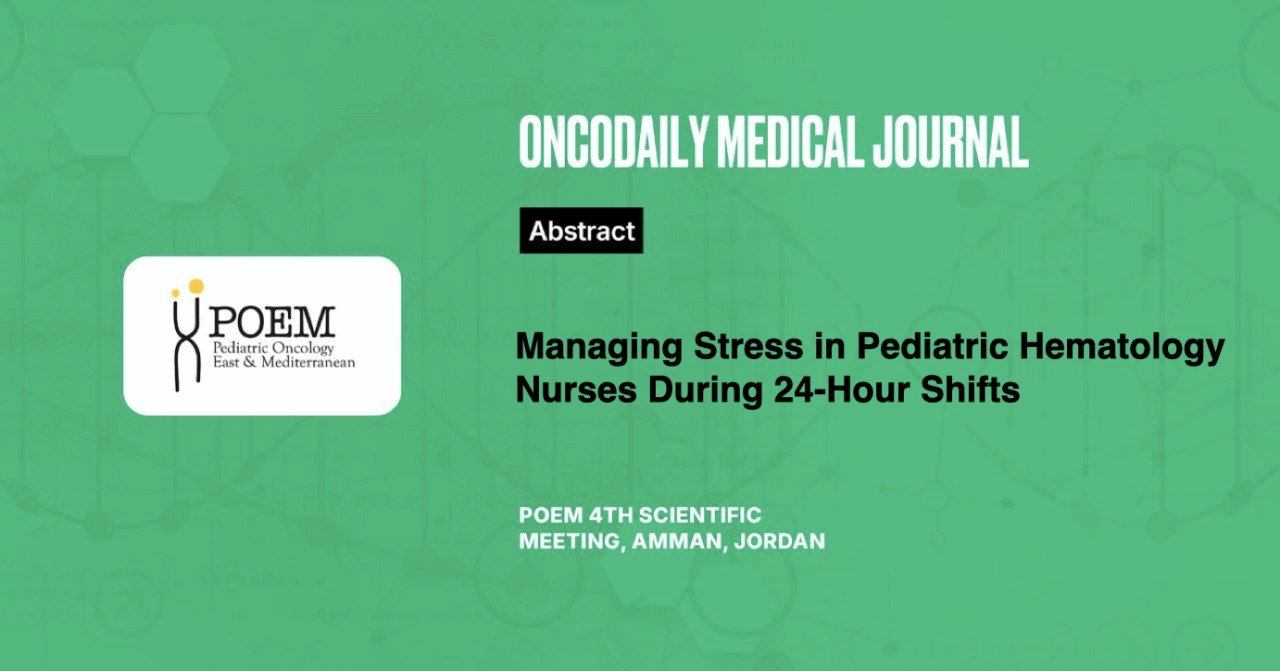Managing Stress in Pediatric Hematology Nurses During 24-Hour Shifts
Abstract
Introduction: Pediatric hematology nurses face intense stress due to the demanding nature of their work. Their responsibilities involve providing care for critically ill children, managing complex treatments, and coping with emotional exhaustion, particularly during long 24-hour shifts. These factors can lead to physical burnout, mental health challenges, and ultimately impact the quality of patient care. Effective stress management is critical for maintaining both nurse well-being and high patient care standards. Despite the availability of stress management strategies, identifying the most effective methods tailored to this specific group of nurses is an area that needs further research.
Methodology: A randomized controlled trial (RCT) involving 25 pediatric hematology nurses from a hospital setting. Nurses will be randomly assigned to one of three intervention groups (music therapy, breathing exercises, or hydration with healthy snacks) during their 24-hour shifts.
Pre- and post-intervention surveys will be used to measure stress levels, physical fatigue, emotional strain, and perceived patient care quality. Additionally, patient care outcomes (e.g., patient satisfaction, error rates) will be tracked. Statistical analysis will be conducted to compare the stress levels and patient care quality across the three groups.
Conclusion: The findings from this study can guide hospital administrators and healthcare teams in adopting practical, evidence-based stress management strategies. By improving nurses’ mental and physical well-being, this research can contribute to better patient outcomes and a more positive work environment.





